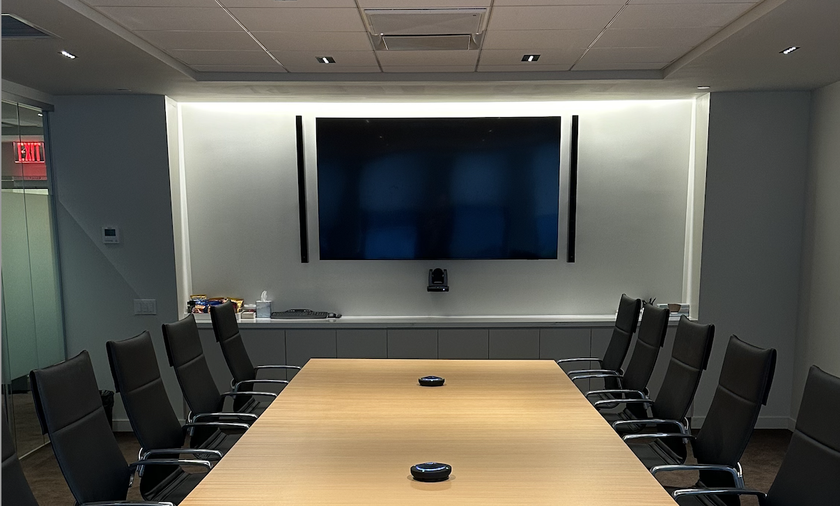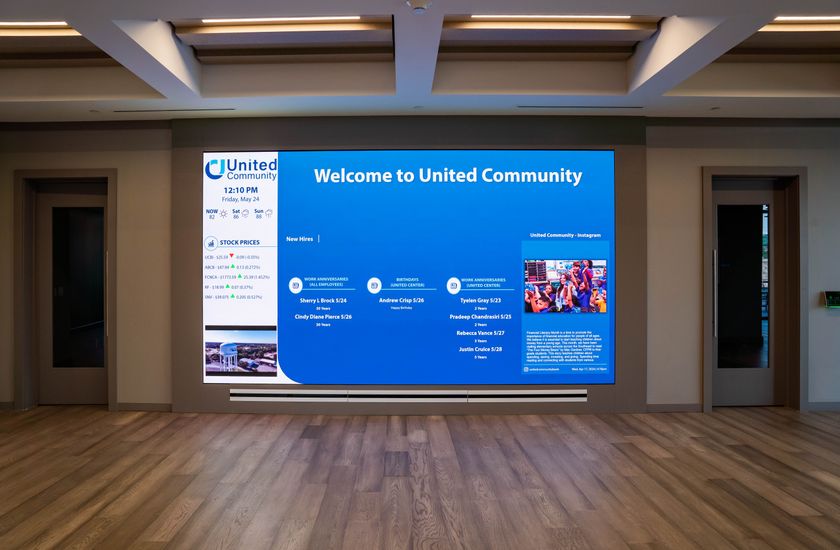What’s In Store For 2010
No matter how optimistic you are, there’s no denying that 2009 was a challenging year. As construction slammed to a near-halt, systems contractors were forced to become increasingly creative—and strategic.
That’s not to say that all firms are down on their luck. A number of companies have reported if not record, then reasonable, growth, and the outlook is positive for the coming year. While Merry S. McCleary, president and CEO of AVYVE in Norcross, GA, expects 2010 to remain just as challenging as the last 12 months, she also noted that some of her best years in the audiovisual industry have been when the broader economy is doing poorly.
Though in a tough economy, rare are the projects involving new construction or major renovations. “The type of project changes. Today, any way that you can connect teams and clients anywhere across the country and worldwide, in order for them to work more efficiently with less travel, is in demand.”
So, too, is the need for solving how companies deal with information. The amount of content created and captured on an everyday basis is driving an increased demand for storage and distribution, McCleary noted, as presenters both in the corporate and education markets record collaborative sessions, training classes, and lectures for circulation on demand. “Now when you receive a specific amount of content, the question becomes how do you manage it and stream it?” she illustrated. “This is going to be big, both in higher education and in corporations over the next couple of years.”
Per Forsberg, president, Audio Architects in Chippewa Falls, WI, relays that the design/build portion of his company’s project base—driven mainly by word-of-mouth—was stronger than the bid market in 2009, although the opportunities for bid jobs did exist. “The university system here had a lot of projects this year, but the competition was bordering on ridiculous,” he said. “We really didn’t see much of that business simply because we weren’t willing to go as low as some of these other companies were going.”
The one area of the bid market in which Audio Architects excelled was the local K-12 schools, which involved smaller intercom and master clock systems, technologies that, he said, larger enterprises don’t always handle.
Forsberg admitted that much of his company’s relative success this year has to do with geography. In his area of Wisconsin, many organizations are just beginning to install video systems, which has generated business over the past year. “The idea of having video involved in so many of the installations is relatively new here, be it flat screens or projectors,” he said. “We are seeing that as a driving force as opposed to people saying, ‘We need a new sound system, what about video,’ they’re saying, ‘We really want video, and while we’re at it, we had better upgrade the sound system.’ Even the smaller, rural churches are installing video.”
While 2009 proved challenging worldwide, the impact of the banking crisis was not as severe north of the border, noted Brock McGinnis, sales manager at Westbury National Show Systems in Toronto, Ontario, Canada. “The recession hit Canada later and much more softly than it did the U.S.,” he said. As a result, Westbury hit its target 20-percent growth rate, and McGinnis said that the company has enough business on the books for 2010 to hit that same target again. Another factor that has contributed to Westbury’s success is that the firm doesn’t deal with a lot of large-enterprise, Fortune 1000 organizations— those that experienced the most significant cutbacks. “We are very diversified, are in a number of different vertical markets, and have a wide range of customer and facility types that we deal with. As a result, we didn’t have massive cancellations.”
Ben Bausher, systems group consultant at JaffeHolden in Norwalk, CT, observed that one of the challenges his firm has faced is that clients are calling much later in the game. “They are getting us on board with very little time before the final tender package comes out, so we need to play catch-up with the rest of the team,” he said. “In many cases, we need to issue addendums, or do a lot of post-bid design in shop drawings, which isn’t necessarily the greatest way of doing it.” Until budgets start to loosen, he predicted that this will remain a relatively common trend for the next little while.
Like McCleary, Bausher also believes that the education market looks promising in 2010, although instead of installing large-scale showcase systems, facilities will focus on the integration of more modest technologies, or the updating of existing systems. “We are seeing a lot of really good systems for doing classrooms well and cheaply—a lot of these have come out in the last year,” he said. This, in large part, is gaining momentum as an increasing number of schools begin to adopt high-definition video.
As businesses everywhere gear up for another challenging year, systems contractors should continue to position themselves as a means of assisting clients in handling affairs efficiently, productively, and profitably.
“Hopefully, companies have been selling themselves as a valuable partner to clients so that they are a part of the strategic planning, whether it’s downsizing, upsizing, or changing the way that they meet and communicate,” McCleary said. “If you are a valuable partner that can bring value to these conversations, business should stay strong.”










